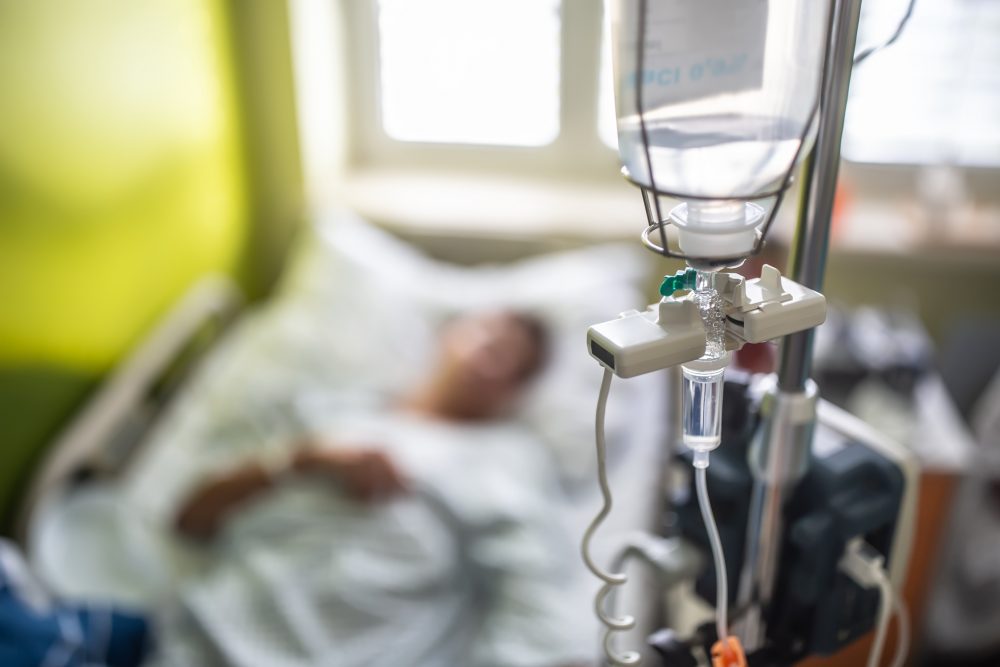NOTE: This story contains details that some may find disturbing. Please read at your own discretion.

Doctors say a 69-year-old man died of COVID-19 last year after exhibiting a bizarre and extremely rare side effect of the disease, which they described as a three-hour erection.
The U.S. patient was suffering from priapism, which involves a persistent erection that outlasts or has nothing to do with sexual stimulation, according to the case report published in the January edition of the American Journal of Emergency Medicine.
According to the case report, the patient had a history of obesity and was suffering from a prolonged cough, congestion, anorexia, weakness and shortness of breath when he went to the emergency room at Miami Valley Hospital in Dayton, Ohio, last year. He tested positive for COVID-19 and remained in hospital for several days, during which his health continued to decline. He was eventually sedated, intubated, placed on a ventilator and moved into a prone position to make him more comfortable.
“Nursing noticed an erection” on the afternoon after he was repositioned, doctors wrote in the case study. Health-care workers tried to help by placing ice packs around the man’s penis, but it stayed erect for three hours.

Experts took a look at the man and ran ultrasound scans. They ultimately determined that he was suffering from ischemic priapism, an urgent and potentially dangerous condition during which blood cannot leave the penis. The condition was likely triggered by a blood clot caused by COVID-19, according to the case report.

Get weekly health news
Doctors gave the man medication to help with his blood flow, then used needles to drain some of the blood and provide his penis with a bit of relief. His erection lasted for a total of three hours by the time they managed to tame it.
The patient was placed on an IV drip after the episode, according to the case report, but his condition continued to worsen. He suffered a prolonged course of acute respiratory distress syndrome, was moved to the intensive care unit and ultimately died.
Doctors say he did not have another case of priapism before the end.

The episode was extremely rare for a coronavirus patient, but the authors point out that there has been one other documented case of such an issue in France.
In the French episode, a 62-year-old man with COVID-19 had an erection for four hours. The erection did not go down with help from ice packs and ultimately had to be drained with a needle. He later recovered from the coronavirus.
Both cases have been blamed on thromboembolic complications — the medical term for a blood clot that breaks loose and jams up a vein, causing low blood flow in an affected part of the body. Such complications have been documented in many COVID-19 patients to date, though the blockages have occurred in other parts of the body.
The late patient’s identity was not released.
—
Questions about COVID-19? Here are some things you need to know:
Symptoms can include fever, cough and difficulty breathing — very similar to a cold or flu. Some people can develop a more severe illness. People most at risk of this include older adults and people with severe chronic medical conditions like heart, lung or kidney disease. If you develop symptoms, contact public health authorities.
To prevent the virus from spreading, experts recommend frequent handwashing and coughing into your sleeve. They also recommend minimizing contact with others, staying home as much as possible and maintaining a distance of two metres from other people if you go out. In situations where you can’t keep a safe distance from others, public health officials recommend the use of a non-medical face mask or covering to prevent spreading the respiratory droplets that can carry the virus. In some provinces and municipalities across the country, masks or face coverings are now mandatory in indoor public spaces.
Read more COVID-19 coverage from Global News.









Comments
Want to discuss? Please read our Commenting Policy first.